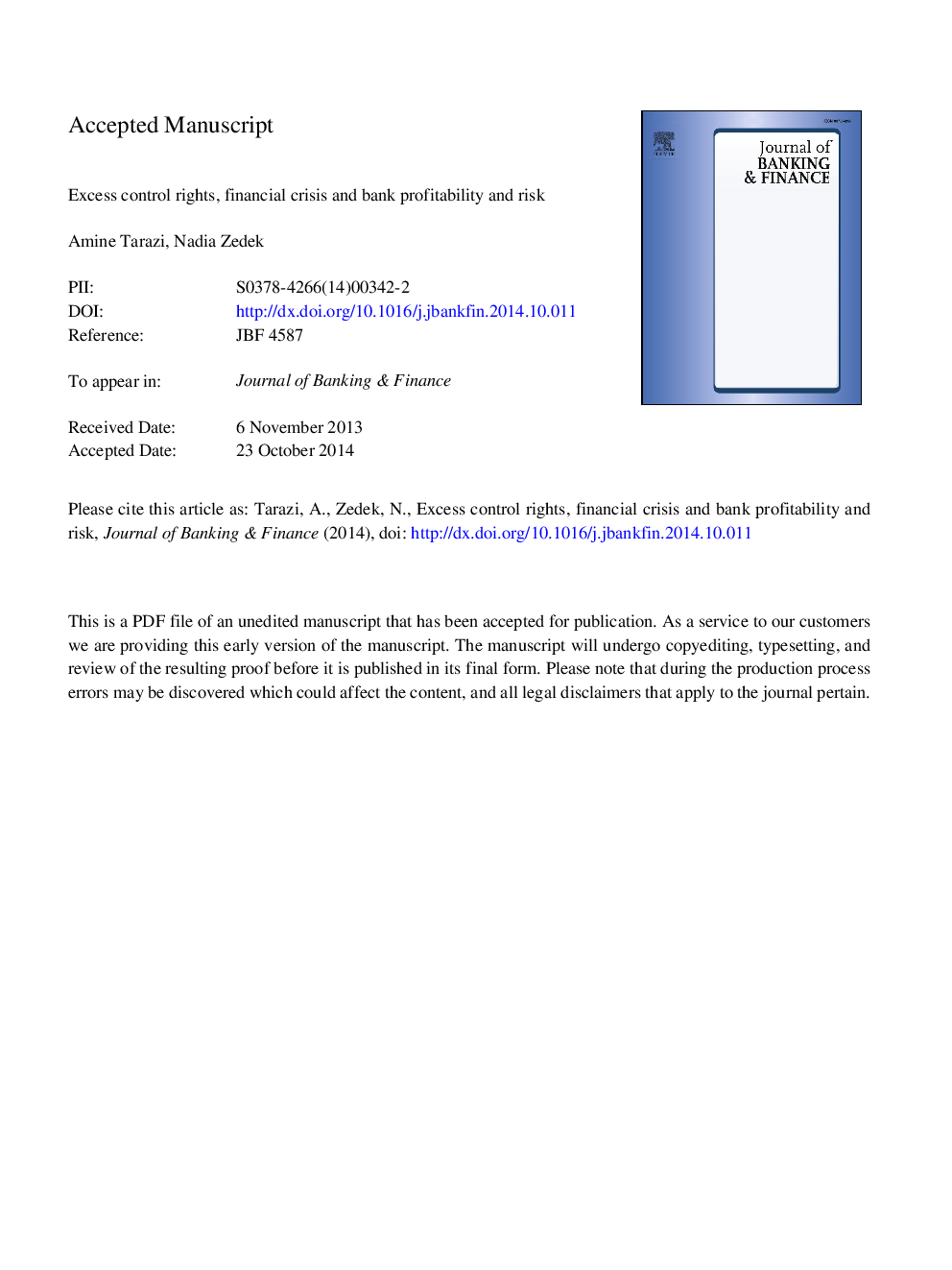| Article ID | Journal | Published Year | Pages | File Type |
|---|---|---|---|---|
| 5088644 | Journal of Banking & Finance | 2015 | 44 Pages |
Abstract
We empirically investigate the impact of shareholders' excess control rights (greater control than cash-flow rights) on bank profitability and risk and how the global financial crisis of 2007-2008 might have modified such an impact for a sample of European commercial banks. While the presence of excess control rights is associated with lower profitability, higher earnings volatility and higher default risk before the crisis (2002-2006) but also at the later stage of the financial crisis (2009-2010), conversely, it improves profitability, lowers earnings volatility and no longer affects default risk during the 2007-2008 financial crisis years. Further evidence shows that, regardless of the period, the effect of excess control rights on profitability and risk is accentuated in family-controlled banks and in countries with relatively weak shareholder protection rights and that such an effect is mainly effective at intermediate and high levels of excess control rights. Overall, our findings contribute to the literature examining the corporate governance determinants of banks' performance during the 2007-2008 global financial crisis and have several policy implications.
Related Topics
Social Sciences and Humanities
Economics, Econometrics and Finance
Economics and Econometrics
Authors
Nadia Saghi-Zedek, Amine Tarazi,
